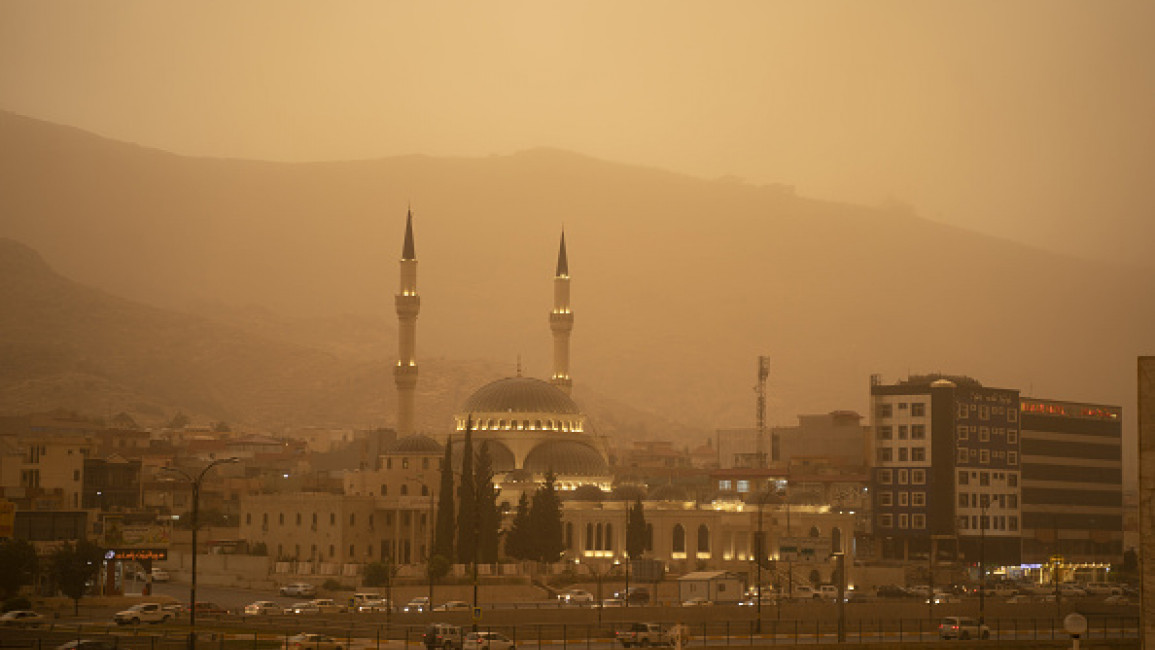Sandstorms sweep across Syria, Iraq once again
Images of sandstorms hitting Syria and Iraq once again circulated on social media on Sunday, echoing dramatic scenes that have been repeatedly witnessed over the past three months.
A "terrifying dust storm" fell across Erbil yesterday, local observers reported. Social media users shared videos of dusty skies while local authorities temporarily suspended flights due to the lack of visibility.
Terrifying dust storm just blanketed Erbil. In < minute visibility reduced to <200 m, things are banging & crashing everywhere in wind. pic.twitter.com/hI19AqXVlb
— Lizzie Porterلِيزي بورتر (@lcmporter) June 25, 2022
Videos showed similar scenes in al-Rukban, a camp hosting internally displaced Syrians near the southern Syrian border to Jordan.
Video showing the sandstorm that hit the Rukban camp area today. pic.twitter.com/rQsp6z7svo
— Fared Al Mahlool (@FARED_ALHOR) June 25, 2022
Dust storm is the heaviest that hits #Rukban_camp#حصار #hesar pic.twitter.com/oiauaPPfqX
— Hesar (@hesar_net) June 25, 2022
Over the past months, similar storms caused suffocation symptoms among thousands of people across Iraq and Syria, occasionally killing people. They devastated several displacement camps and damaged electricity and communication networks in rural provinces.
Iraq was heavily affected, with at least nine major sandstorms hitting the country since April, causing schools and airports to be shut down and thousands of people hospitalised with respiratory health issues. Several Iraqi airports temporarily halted flights in anticipation of some of the storms.
Sandstorm in camp Al Hol .. May Allah save the Muslims pic.twitter.com/XfrHZCw8Dj
— Ebu Taira (@Halqum1) June 25, 2022
Both countries are already battling rampant desertification. They are also among the countries most vulnerable to climate change, which is expected to lead to less rainfall and more frequent and intense sandstorms in the region.
Experts and officials have warned of impending disaster if Iraqi authorities don’t urgently adopt environmental plans. Iraq's environment ministry recently warned that Iraq could face at least 300 dusty days a year by 2050.



